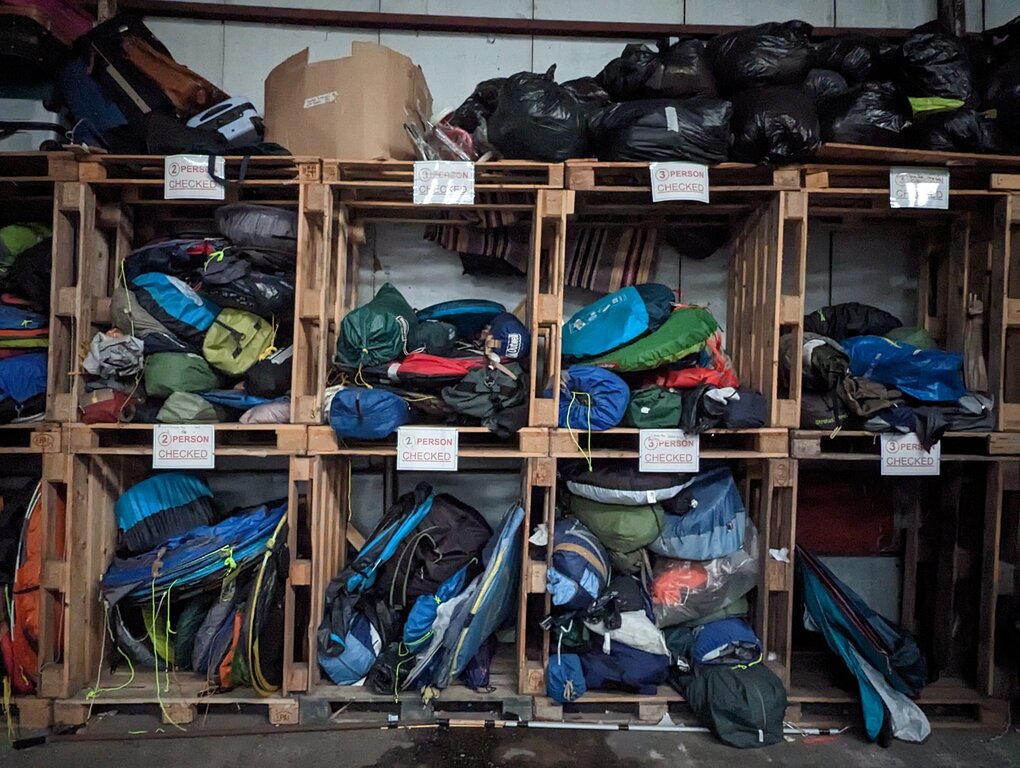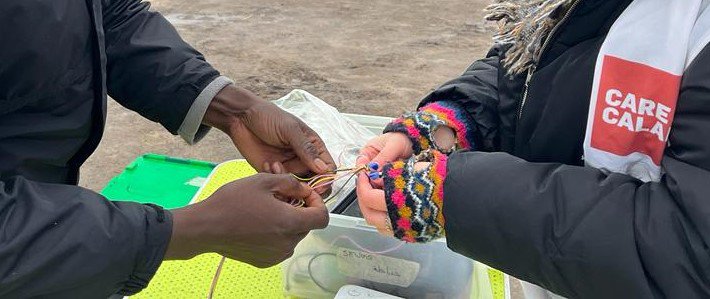Our Co-Chair Andrew recently spent two weeks volunteering with Care4Calais and meeting refugees in northern France with his partner Jennifer Mason. Here is his account of the experience.
Image above: A refugee from Chad makes a volunteer a friendship bracelet. Photo: Jennifer Mason
For some reason I had this idea I was quite good at Connect 4. Admittedly the last time I played was about 20 years ago when our kids were little. But here I was being soundly and repeatedly beaten by two refugees from Sudan. We were sitting on camping chairs on a muddy piece of wasteland on the southern outskirts of Calais, a strong wind was whipping across the flat landscape and the January temperature was around 2⁰C. The guys had just got hot tea from the back of the van and were charging their phones off our generator whilst practicing their English with me. We were in one of the four informal settlements on the edge of town where many refugees wanting to cross to England gather.
My partner Jennifer and I were spending two weeks volunteering with Care4Calais, the British charity that distributes direct aid to refugees stuck on the UK – France border in the Calais to Dunkirk area.
The informal settlements
There are no formal refugee camps in Calais anymore, (The Jungle camp has long gone,) so people have pitched tents and built shelters in scattered groups, where possible out of sight of the locals. These are desolate places, waterlogged waste land and strips of woodland, but the refugees were resourceful and had built effective shelters, often using blue tarpaulins, donated tents and old pallets. But January in northern France is a tough time to manage in a tent.
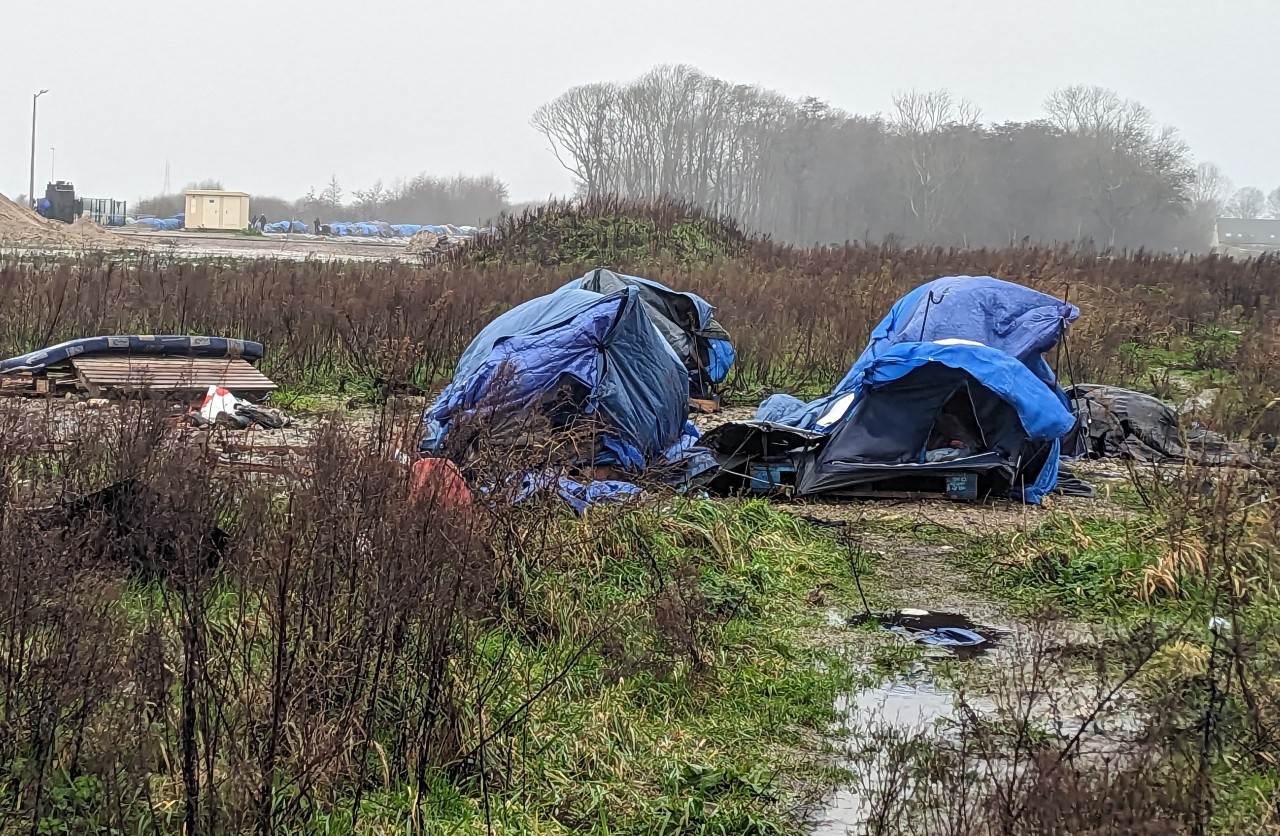
Informal settlements on the southern outskirts of Calais. Photo: Andrew Jones
One morning in horrible weather I went out with a team leader to check out who needed a food pack and saw close up how refugees are forced to live here, no fresh water, no toilets or showers, mud and rubbish. Many would come down to the van a collect a food pack but others decided to stay dry in their shelter. The choice was to go hungry or be soaking wet for days – which is no choice.
The settlements are not static or secure. Whilst we were distributing winter coats one cold afternoon 17 CRS (French riot police) arrived to clear any unoccupied tents they could find, a policy of harassment designed to stop permanent camps being established. This is the daily reality for these refugees.
The people
I met refugees from many places - Sudan, Eritrea, Chad, Afghanistan, Syria, Kurdistan, Iran, Iraq and more; some of the most dangerous places in the world. For some we had no shared language but managed enough non-verbal communication to get the right number of sugars in the tea or coffee, play chess or dominoes together, enjoy their music through our Bluetooth speaker.

Image courtesy of Care4Calais
But others spoke some English and wanted to practice and I heard such extraordinary stories. I met people who had fled terrible wars, persecution or compulsory conscription without end, people who had walked from Afghanistan or Iraq, refugees who had been on their hazardous journeys for years, people who had made it through Libya and survived the Mediterranean crossing, deportations from Turkey, imprisonment in Greece, hospital stays. But there was talk of more everyday things too, amazingly there was laughter and fun and positivity, the normality of regular social interactions.
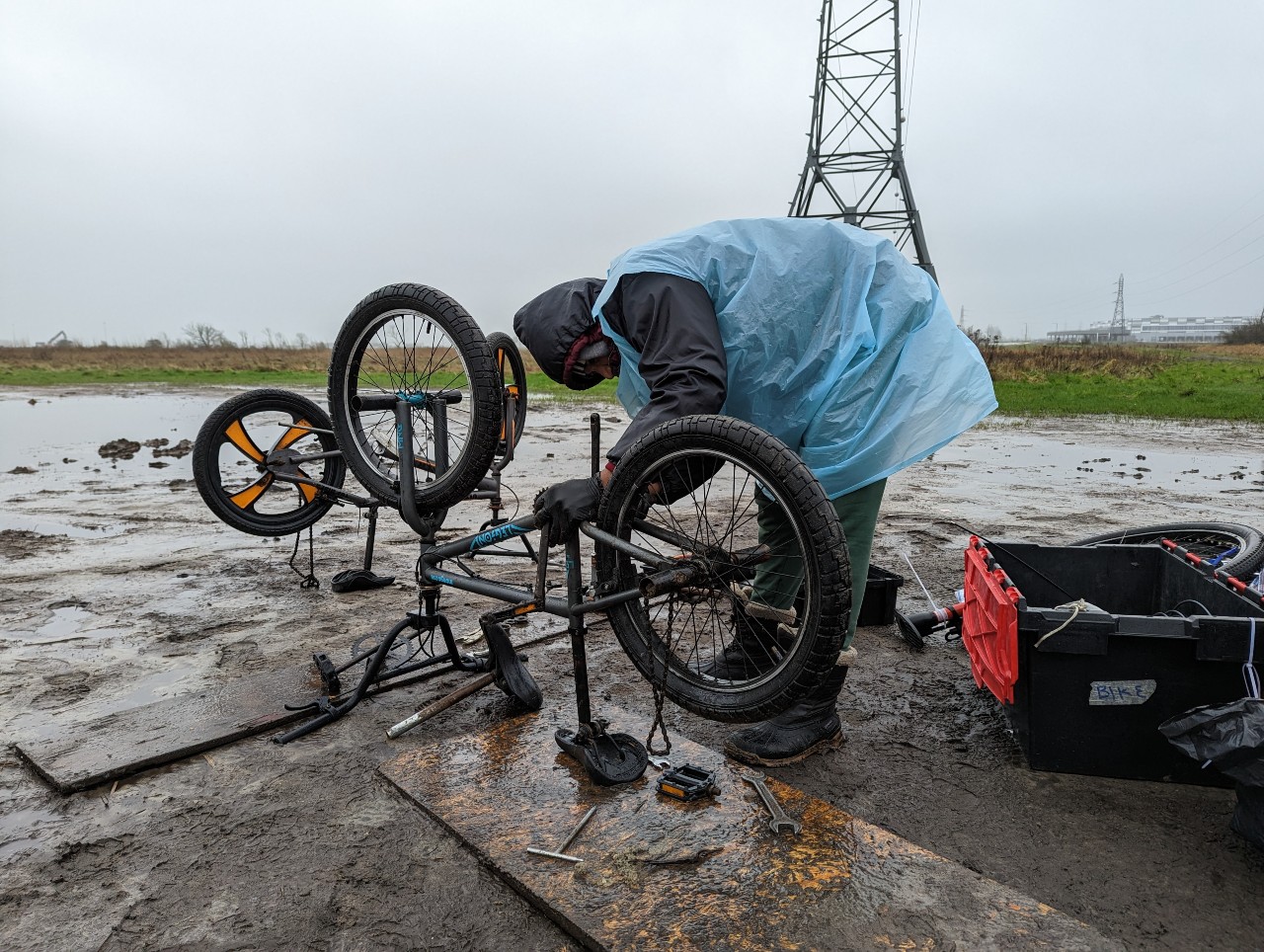
This shows an ingenious guy from Sudan building a workable bike from two ruined ones using Care4Calais tools. Photo: Andrew Jones
All the people we met wanted to get to the UK. Some had family or friends here, or language skills, or after bad experiences elsewhere felt it was the place where they could finally be safe. I spoke to people who had attempted to cross in small boats but had been caught on the beach, turned back by sea patrols or rough weather. Others, particularly in Dunkirk, who didn’t have the money to pay the smugglers to get in a boat would try and “jump the trucks”, a very dangerous strategy with risks of crushing, falling, asphyxiation or freezing. But such was the determination to complete this last part of their journey people would try and try – we spoke to one 16-year-old Kurd (a child!) who had tried to get into a truck for more than 50 nights.
Late one afternoon on the Dunkirk site a multi-generation Kurdish family of eight with several young children arrived. They had no tents, no sleeping bags. The parents looked exhausted and drawn with anxiety but somehow were keeping their kids positive with play and encouragement, shielding their children from their precarious situation. Amazing people. Our team leader made a few calls to get some shelter organised that night, but I won’t forget the sight of those small children smiling and waving us off as we left that day.
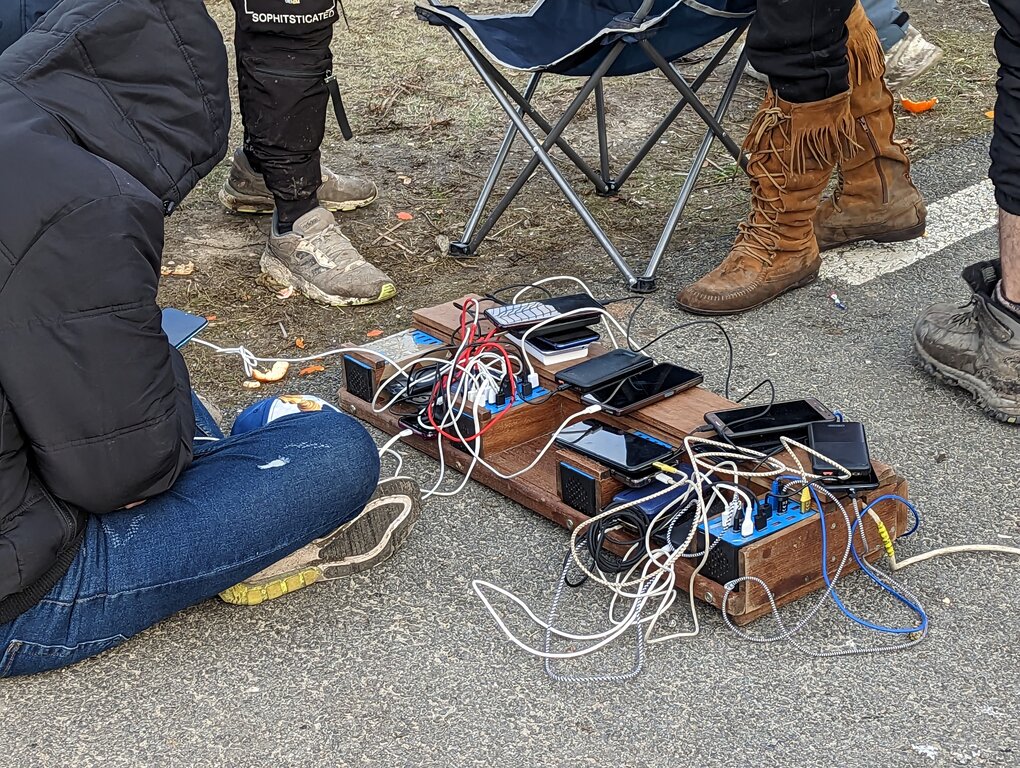
The all-important phone charging. Photo: Andrew Jones
The people we met in these weeks are inspirational, the survivors, the most resilient and courageous, but why do we have a system that forces them to take such risks? Brave people who have escaped from war and persecution should not be made to risk their lives once again to seek asylum in the UK. We need a system of safe passage now. Refugees trapped in Calais must look at the ferries heading out of the port all day long and wonder, why is it this way? I know I did.
Volunteering with Care4Calais
Our time with Care4Calais was a very positive volunteering experience thanks to our wonderful team leaders Jess and Lauren and a great group of volunteers who were fun, collaborative and united in common purpose. The front-line team are brilliant, well organised, friendly and very effective at managing volunteers and distributing aid to refugees in a respectful way. Whether it is working in the warehouse or out on the sites all volunteers, whatever their strengths and skills, can fully participate in supporting refugees as well as having those friendly conversations.
The trip as a whole was quite an experience, so much to think about and a whole mix of emotions, I'm so glad we did it. If you are interested in volunteering with Care4Calais here is how you can get involved. Just brush up on your Connect 4 skills before you go!
